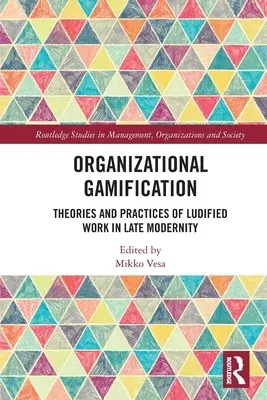Organizational Gamification: Theories and Practices of Ludified Work in Late ModernityPaperback, 29 August 2022

Qty
1
Turbo
Ships in 2 - 3 days
Only 1 left
Free Delivery
Cash on Delivery
15 Days
Free Returns
Secure Checkout

Part of Series
Routledge Studies in Management, Organizations and Society
Print Length
258 pages
Language
English
Publisher
Routledge
Date Published
29 Aug 2022
ISBN-10
0367712377
ISBN-13
9780367712372
Description
Product Details
Book Format:
Paperback
Country of Origin:
US
Date Published:
29 August 2022
Dimensions:
22.86 x
15.24 x
1.42 cm
ISBN-10:
0367712377
ISBN-13:
9780367712372
Language:
English
Location:
Oxford
Pages:
258
Publisher:
Weight:
358.34 gm